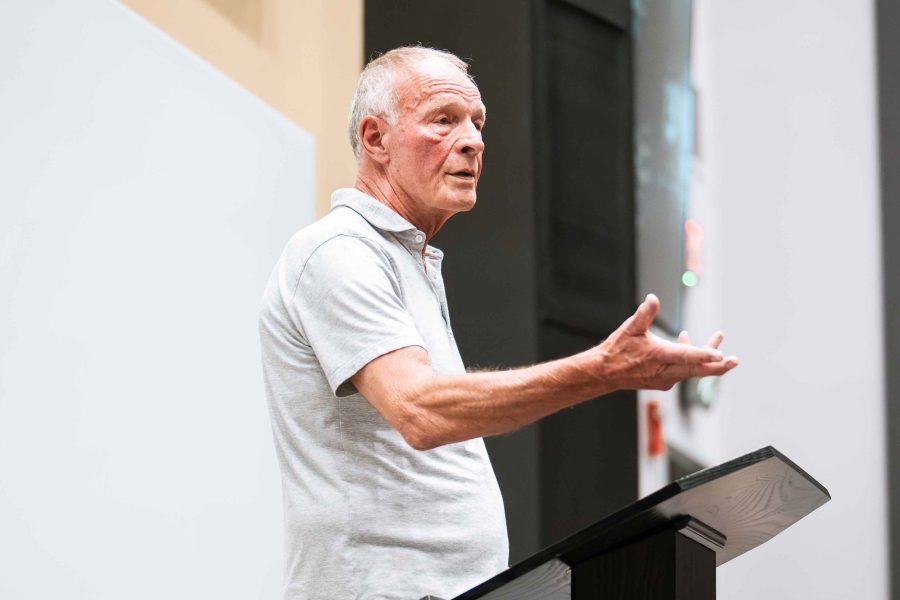Addressing mental-health issues around the world
Worldwide, more than 450 million people live with unmet mental health care needs. In low-income countries, there are often only one or two mental health professionals, as compared to 200 times more doctors and nurses for the same population in high-income countries.
The Mental Health Facilitators (MHF) program, launched in 2008, is a first step toward addressing this need. MHF was formed by the National Board of Certified Counselor International (NBCC) in response to a request by the World Health Organization to help people in developing countries who have never had access to mental health care.
The program sends a team of counselors to towns and villages in other countries to train local people how to recognize mental health issues and make references for professional care. The curriculum for the program was developed by Professor of Counseling Donna Henderson and Scott Hinkle, a clinical training coordinator with the NBCC .
“By making the curriculum simple to understand and retain, the participants we train have an easier time sharing their knowledge when they return to their communities,” says Henderson. “The curriculum has tremendous potential for mental health outreach.”
Some of those trained will then become trainers themselves, increasing the impact even more, so that never-before-served populations have access to community-based mental health care services. Organizations in numerous countries, including Afghanistan, Botswana, China, Indonesia, India, Romania, Singapore, Tanzania and Turkey, have expressed interest in the training.
Most recently, Henderson and Hinkle trained 32 mental health facilitators in Bhutan. Those who attended received 30 hours of training on mental health issues, as well as listening and communication skills to help them offer support and better determine if an individual may require professional mental health care.
When they return to their communities, they may face mental-health issues that arise from everyday stress, as well as crises, disasters, trauma or violence. Using the MHF’s guidelines they learn to identify and respond to cases of dementia, alcohol and drug abuse, domestic violence and depression. The facilitators are not mental health workers but are first responders to help with problem-solving and to make referrals.
The curriculum is modified based on the culture of the country where it is being taught. In some countries, mental illness can be seen as spiritual punishment. In others, expressing feelings, especially for men, is a cultural dishonor. The stigma attached to mental illnesses can be a serious barrier to effective treatment.
“Our training helps facilitators identify all the possible sources of help available and how to get to them,” Henderson says. “Sometimes, as in Bhutan where there are only two psychiatrists, this may mean a long journey or connecting with other medical personnel and professionals.”
Related Links
- Counseling department
- Donna Henderson’s home page
- Mental Health Facilitator Program
- National Board of Certified Counselor International
Mental Health Statistics
- 40% of countries have no community mental health care facilities
- 40% of countries have no mental health programs for children (50% have none for the elderly)
- 28% of countries have no mental health care budget
- Human rights violations of psychiatric patients are routinely reported in most countries. These include physical restraint, seclusion and denial of basic needs and privacy. Few countries have a legal framework that adequately protects the rights of people with mental disorders.
Source: WHO statistics from the National Board of Certified Counselors-International Web site



